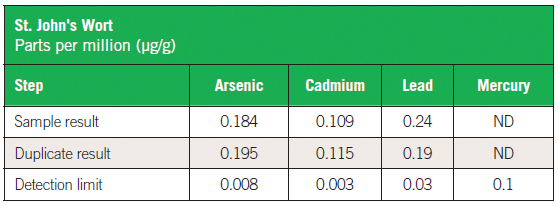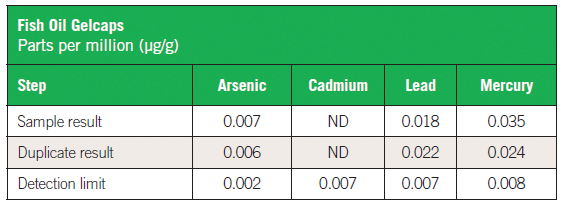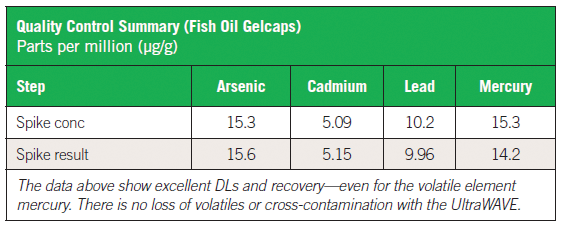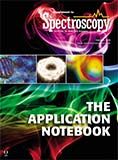Microwave Sample Prep for Heavy Metals Determination in Accordance with USP /
Special Issues
Single reaction chamber (SRC) microwave digestion offers significant benefits over traditional microwave digestion for pharmaceutical samples: higher sample throughput, reduced labor and consumables costs, simplified workflow, and superior digestion quality.
Single reaction chamber (SRC) microwave digestion offers significant benefits over traditional microwave digestion for pharmaceutical samples: higher sample throughput, reduced labor and consumables costs, simplified workflow, and superior digestion quality.
Summary
New USP chapters <232> and <233> for the measurement of inorganic contaminants in pharmaceutical samples have been implemented. While samples can be dissolved in aqueous or organic solvents, the large majority will require digestion, and closed-vessel microwave digestion is stipulated by USP. Single reaction chamber (SRC) microwave digestion is a new type of closed vessel digestion that was developed by Milestone, and offers many advantages over closed vessel digestion-particularly for pharmaceutical sample types.
Two sample types, St. John's wort and fish oil, typical of finished product pharmaceuticals, were digested using an SRC digestion system, and analyzed for the four toxic USP elements using collision-cell ICP-MS. Since all samples are digested together in a single chamber, duplicates and spike recoveries were performed to confirm the retention of volatile elements and the absence of cross contamination.

Instrumentation
The Milestone UltraWAVE can digest up to 15 samples simultaneously, at up to 300 °C and 199-bar pressure. Its high temperature and pressure capability enables the complete digestion of virtually every sample type. Samples are weighed into vials and placed in the chamber, and any combination of sample types can be digested together, greatly simplifying the sample prep workflow. Raw materials, excipients, API, and final product can all be digested together in the same run. Additionally, the UltraWAVE uses disposable glass vials, eliminating vessel assembly/disassembly and vessel cleaning, which significantly reduces labor and consumables costs. Most pharmaceutical sample types have high organic content, including oils and fats, which are difficult to digest and generate CO2, which increases pressure in the reaction vessel. The high pressure capability of the UltraWAVE enables it to digest entire fish oil gelcaps, which is not possible with traditional closed vessel microwave.

The UltraWAVE can digest samples in as little as 3 mL acid, which minimizes reagent blank levels–important since ICP-MS will be used predominantly for USP <232>/<233>. The SRC chamber is prepressurized with N2 prior to the start of the run. This prevents sample boiling, eliminating cross-contamination and loss of volatiles.

Conclusion
Milestone's UltraWAVE SRC microwave digestion system offers multiple benefits for sample preparation and subsequent analysis.
Due to its higher sample capacity, use of disposable vials, and faster cool-down time, the UltraWAVE's sample throughput is 2–3x higher than closed vessel digestion. Its lower consumables costs, simple operation, and superior digestion quality also make the Milestone UltraWAVE the perfect choice for pharmaceutical sample prep.

Milestone, Inc.
25 Controls Drive, Shelton, CT 06484
tel. (866) 995-5100, fax (203) 925-4241
Website: www.milestonesci.com

LIBS Illuminates the Hidden Health Risks of Indoor Welding and Soldering
April 23rd 2025A new dual-spectroscopy approach reveals real-time pollution threats in indoor workspaces. Chinese researchers have pioneered the use of laser-induced breakdown spectroscopy (LIBS) and aerosol mass spectrometry to uncover and monitor harmful heavy metal and dust emissions from soldering and welding in real-time. These complementary tools offer a fast, accurate means to evaluate air quality threats in industrial and indoor environments—where people spend most of their time.
NIR Spectroscopy Explored as Sustainable Approach to Detecting Bovine Mastitis
April 23rd 2025A new study published in Applied Food Research demonstrates that near-infrared spectroscopy (NIRS) can effectively detect subclinical bovine mastitis in milk, offering a fast, non-invasive method to guide targeted antibiotic treatment and support sustainable dairy practices.